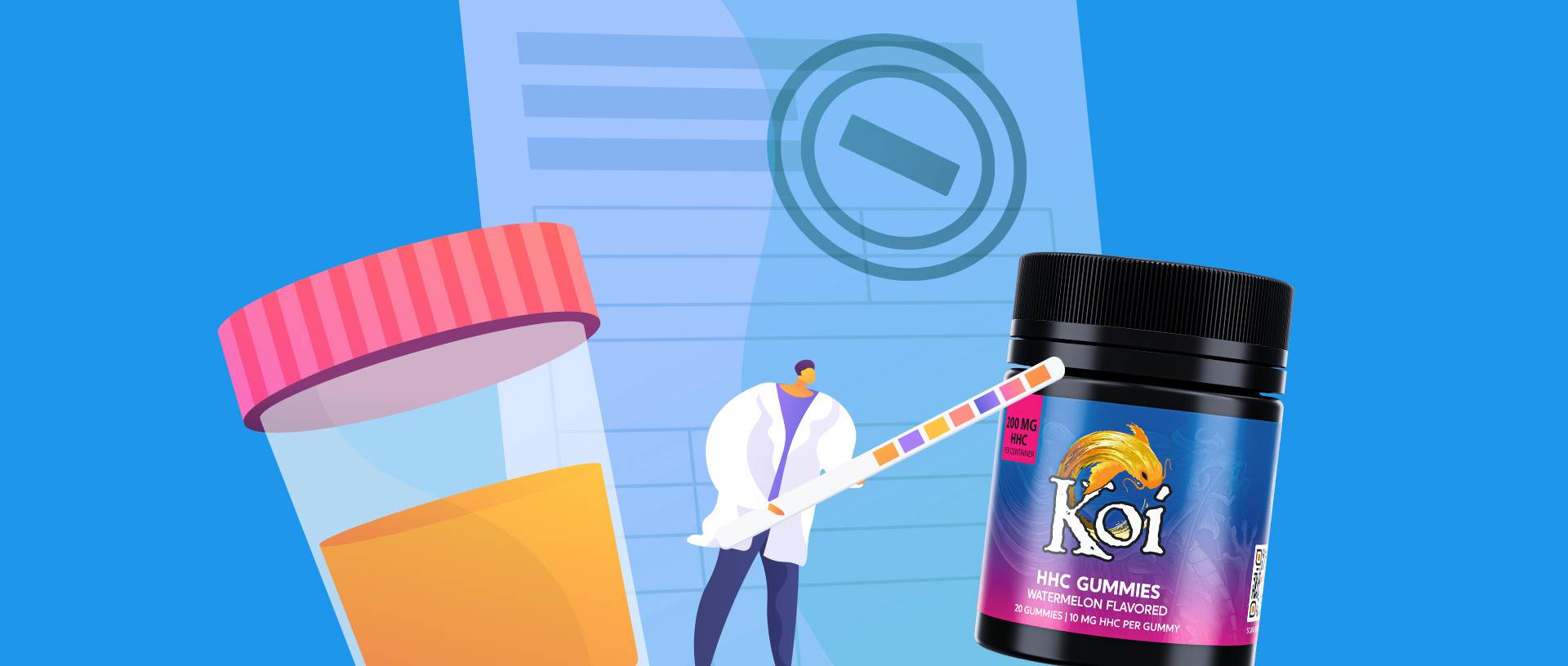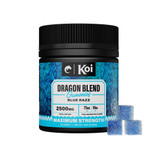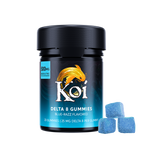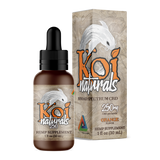Rumors have it that HHC isn't detectable on a drug test. But that's not necessarily the case! Despite some anecdotal reports, there's no objective evidence to suggest that drug tests won't detect your use of HHC. So here's all you need to know about whether HHC shows up on a drug test.
Key takeaways:
- HHC will likely cause you to fail a drug test.
- Anecdotal reports suggest that HHC isn't detectable on a test, but there's no real evidence to verify that.
- The surefire way to avoid a positive drug test is to avoid using cannabinoids, including HHC.
So, you want to use HHC to relax but are worried whether you'll be able to pass a drug test.
If you work in the public service industry or are a competitive athlete, you are familiar with drug tests. Some private companies also regularly conduct drug tests on their employees.
Usually, these companies aren't testing whether you've used HHC recently. Instead, they're looking for evidence of THC use.
Depending on the type of test, the duration in which it can detect recent THC use goes as far back as three months. The tests are quick but efficient at catching past use; failing one could seriously jeopardize your career.
So, why should you be worried about a test that checks for THC when taking HHC? In many cases, these tests cannot distinguish between THC and other elevating cannabinoids.
Now you know the essential facts about HHC and drug tests. Keep reading to learn more, including why using HHC makes you susceptible to drug tests that look for THC and some factors that can influence your likelihood of testing positive if you've used HHC.
What is HHC?
Most people take HHC products for the same reasons they take THC – the cannabinoid's uniquely elevating effects. HHC delivers pleasant, noticeably relaxing results but with little-to-no cerebral fogginess. It's an excellent go-to for sparking creativity, kicking back and hanging out with friends, or immersing yourself in a book. Finding others who take it for its natural wellness properties is also possible.
Another reason people turn to HHC is the belief that it delivers similar benefits to THC but isn't detected by drug tests. But that isn't necessarily true.
First, a quick overview to answer the common question, what is HHC? HHC, or Hexahydrocannabinol, is a hemp-derived cannabinoid with elevating properties similar to delta 9, but at a slightly lower strength. HHC is estimated to contain roughly 80% of the potency of delta 9.
HHC naturally occurs in the hemp plant but in minimal amounts. Therefore, scientists can safely create HHC for HHC products by converting it from other more abundant cannabinoids, like hemp CBD. It was first created in 1944 by American chemist Roger Adams. He added hydrogen molecules to delta 9 in a hydrogenation process. The result was hexahydrocannabinol.
As a cannabinoid, HHC works the same way as other natural cannabinoids. It interacts with and stimulates cannabinoid receptors to elicit its elevating and other wellness benefits.
How Does HHC Work?
The key to understanding why HHC may cause you to fail a drug test is to recognize its close relationship to THC.
HHC and delta-9 THC function almost the same inside the body. They interact with and influence the endocannabinoid system (ECS) network, which comprises receptors, endocannabinoids, and enzymes. THE ECS is tasked with maintaining homeostasis and balance in various functions in the body.
In this instance, the most important is the endocannabinoid system's CB1 receptors in the brain and the central nervous system. HHC selectively targets these receptors, just like THC. This direct binding to CB1 receptors produces elevating effects and supports some other benefits, such as better sleep and general health and wellness promotion.
It's also likely that HHC interacts with other receptors to influence related hormone production in the body. But more research is necessary to paint a clearer picture of how HHC works in the body.
Because HHC has relatively similar effects to THC, it's normal to be concerned about an upcoming drug test if you've recently taken HHC.
Does HHC Show Up on a Drug Test?
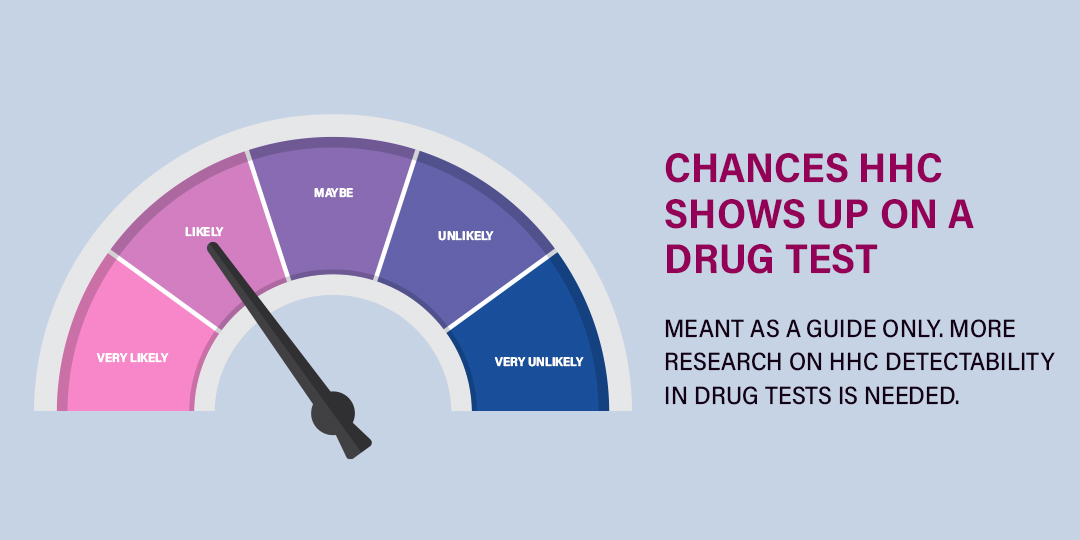
The short and simple answer to whether you can fail a drug test after using HHC is yes.
But there's more to it than a simple yes or no.
It would help if you understood that drug tests are not designed to check for HHC but for THC. However, because the two compounds are so similar and produce similar metabolites as they break down in the body, there's a strong likelihood that HHC will trigger a positive test because it can't tell the difference between the two products. In essence, the result is a false positive.
HHC shares many similarities with THC, including chemical structure and metabolites, the primary markers used to detect THC in blood, saliva, or urine samples. It's also possible to trigger a positive result if the sample is hair, but these tests are less reliable.
How Does HHC Metabolize?
The best way to confirm or refute the claims of whether someone could use HHC without being at risk of a positive drug test is to understand how two things:
- How a conventional 12-panel drug test works, and
- How HHC metabolizes
Drug tests look for metabolites, the substances made when the body breaks down food or compounds. These metabolites stay in the body much longer than the original compound.
There's not a lot of research surrounding HHC and its metabolites, so most of our understanding and information is based on research around similar cannabinoids and anecdotal reports. However, as a THC analog, it's reasonable to assume that the liver breaks down HHC the same way it breaks down THC.
In the case of delta 9 THC, the primary metabolite left behind is THC-COOH or 11-hydroxy-THC. And early evidence suggests that HHC metabolites are similar. For example, one study found that liver microsomes from small rodents metabolized HHC molecules similarly to THC and produced a minor active metabolite. But instead of 11-hydroxy-THC, it comes out as 11-hydroxy-HHC.
The drug tests for THC are designed to look for these metabolites. Therefore, knowing how HHC is metabolized is vital to understanding if it might cause you to fail a drug test.
Why Will HHC Turn a Positive Drug Test?
There are two primary reasons why HHC will likely result in a false positive drug test result:
1. HHC produces similar metabolites as THC
As already covered, the liver most likely metabolizes HHC the same way it does THC. This conclusion is drawn from the structure and nearly identical effects shared between HHC and THCs like delta 9 and delta 8. Also, HHC is an analog of delta 9, further supporting the argument that it might produce the same metabolites as THC.
However, there's no scientific evidence to confirm if the metabolites are identical. Some say they've tested positive on a drug test after using HHC, while others say the opposite. However, from the knowledge available on cannabinoids, it's more likely that HHC turns a positive drug test because of the metabolites.
2. Some HHC products may contain some THC
There's the possibility that your HHC product might contain small amounts of THC. Some brands purposely formulate a blend of multiple cannabinoids into a single product for unique effects.
There's also the chance that your HHC product inadvertently has some THC. Reputable brands will provide you with Certificates of Analysis for the product you're considering, which shows the complete list of cannabinoids and their concentrations.
Only buy your HHC products from reputable, reliable brands that have them tested by an accredited, third-party lab so you have actual results of what you're getting.
How Long Does HHC Stay in Your System?
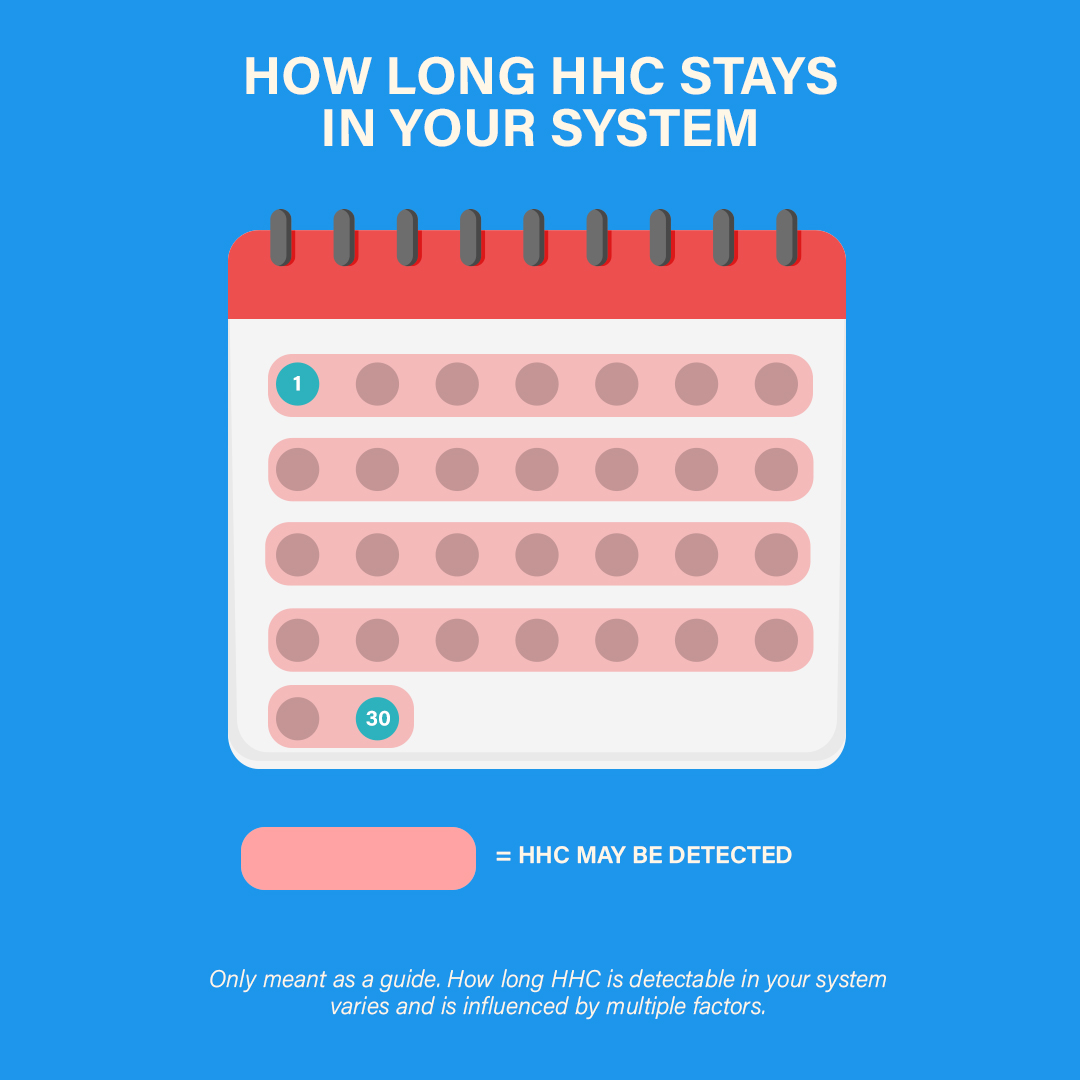
A critical consideration to whether you should be worried about a drug test after taking HHC is how long HHC stays detectable in your system. HHC metabolites can be in your system and detectable anywhere from 1 to 30 days, depending on various factors:
Frequency
How often do you take HHC products? More frequent consumption means the metabolites are detectable over a more extended period, which could be up to 30 days or longer. That's because the metabolites are fat soluble, so they're not as easy to expel.
Metabolism
Metabolism can vary significantly in different people. It's affected by genetics, age, weight, levels of certain enzymes in the liver, diet, and even general activity levels. An efficient metabolism can burn through the metabolites quicker than a slower metabolism.
Age
Your metabolism slows down as you age. That means it takes longer for substances to metabolize if you're older. As a result, your age significantly determines how long HHC stays in your system. For example, in a 30-year-old, it might take a few days for all the metabolites to disappear, while in a 60-year-old, the metabolites could linger for longer.
Method of consumption
How you take HHC also affects the time it takes the cannabinoids to leave the body. For example, HHC is more likely to stick around longer if it must go through digestion, as is the case with HHC gummies. On the other hand, it will clear out more quickly when consumed through inhalation like with HHC vape cartridges because it is delivered straight to the bloodstream through the lungs. Generally, consumption methods with a faster onset of effects also mean speedier processing and elimination of the metabolites.
HHC concentration
The amount of HHC you take will also determine how long the metabolites hang around. Larger servings mean the metabolites are more likely to linger in your system because they take longer to process, while smaller servings are much easier to process.
More About HHC and Drug Tests
Discover more about HHC safety, as well as any drug test considerations to keep in mind, on the Koi blog.

